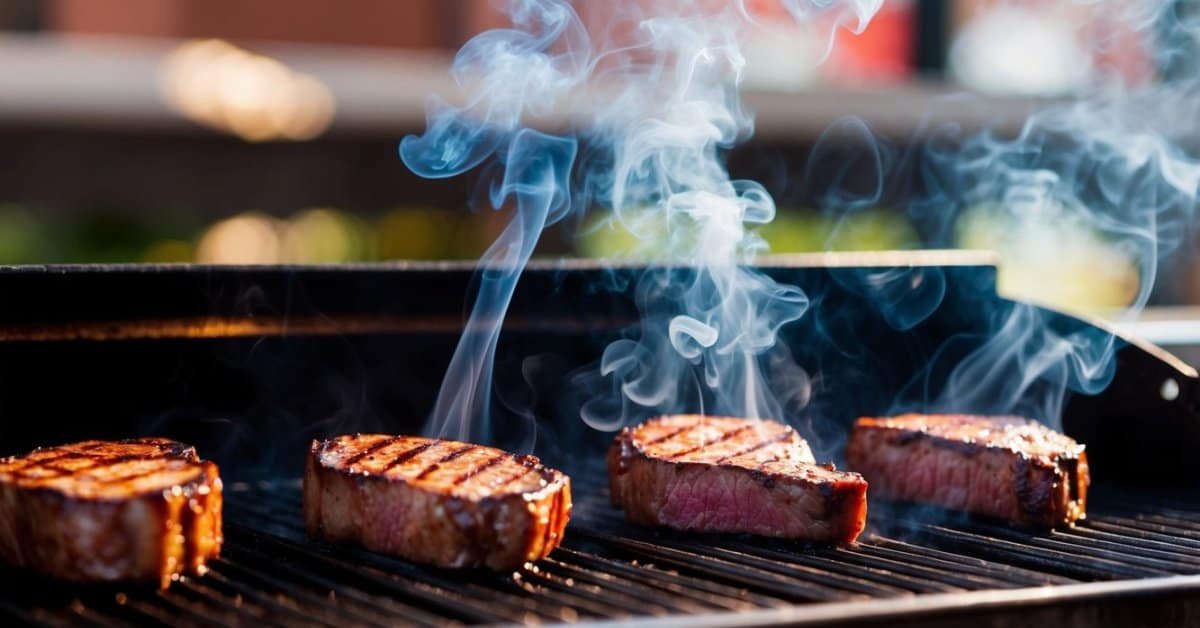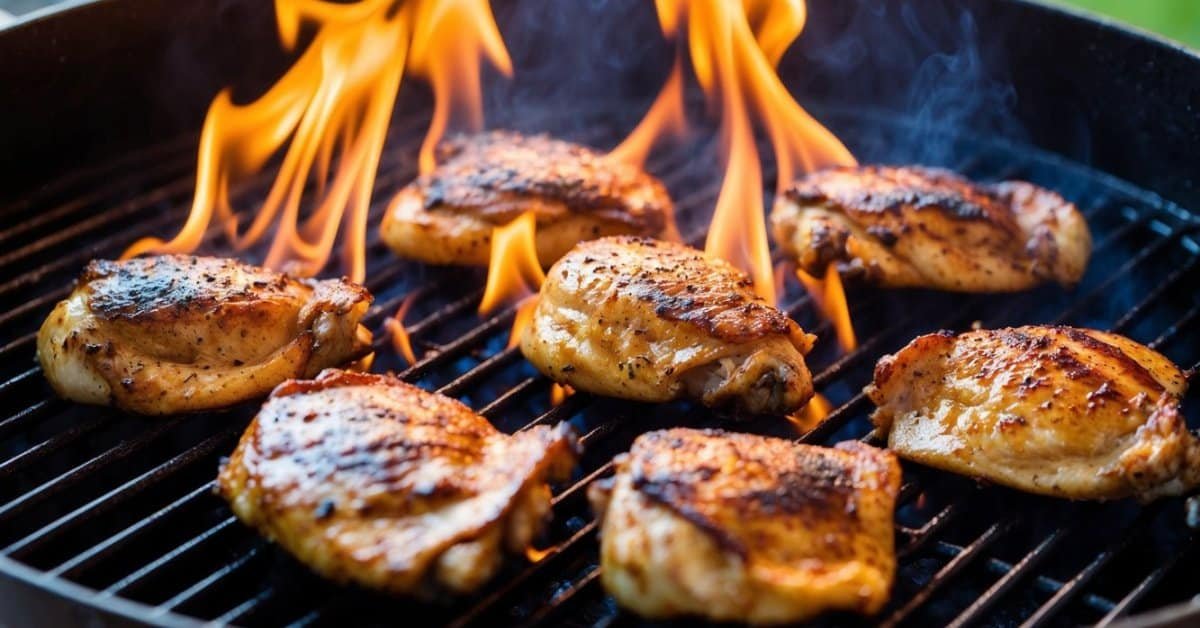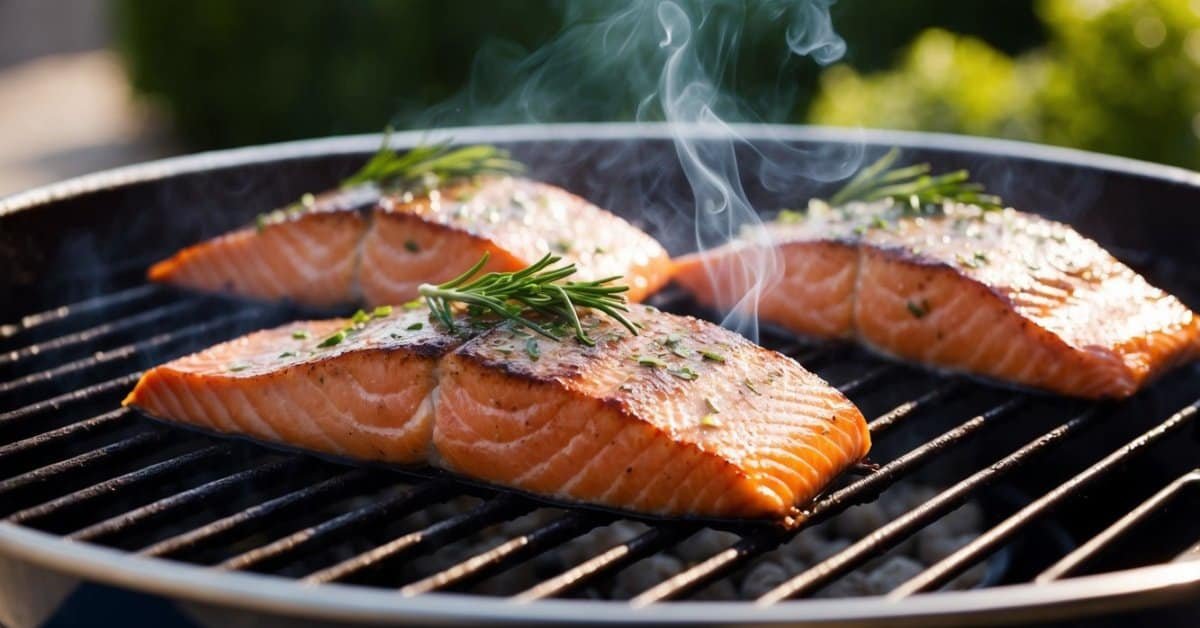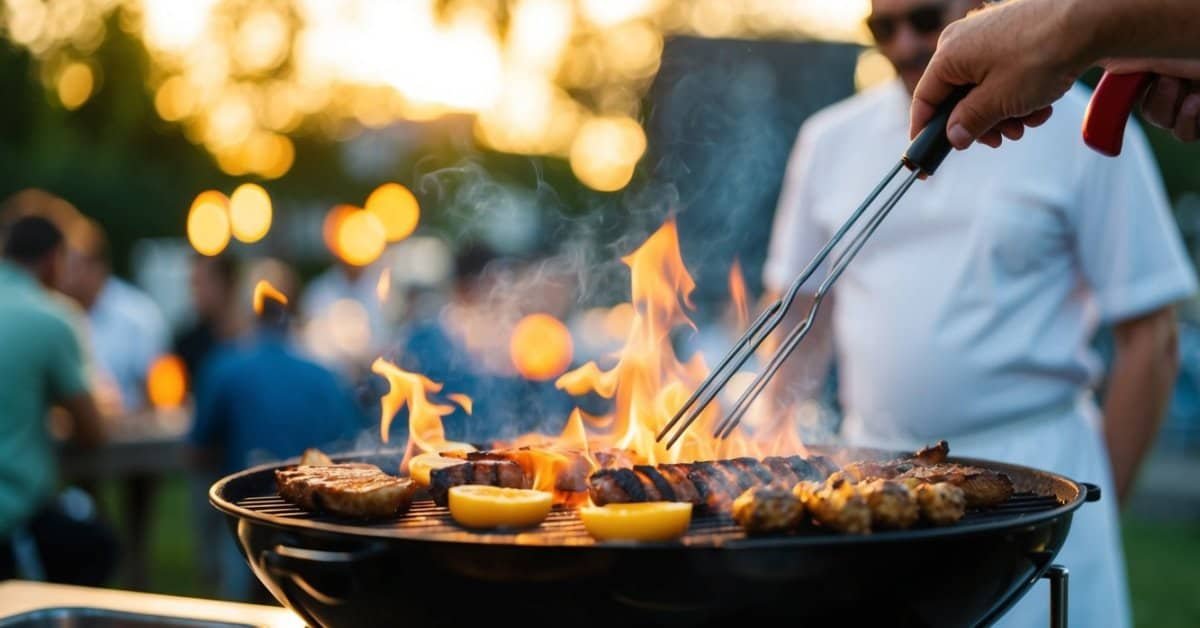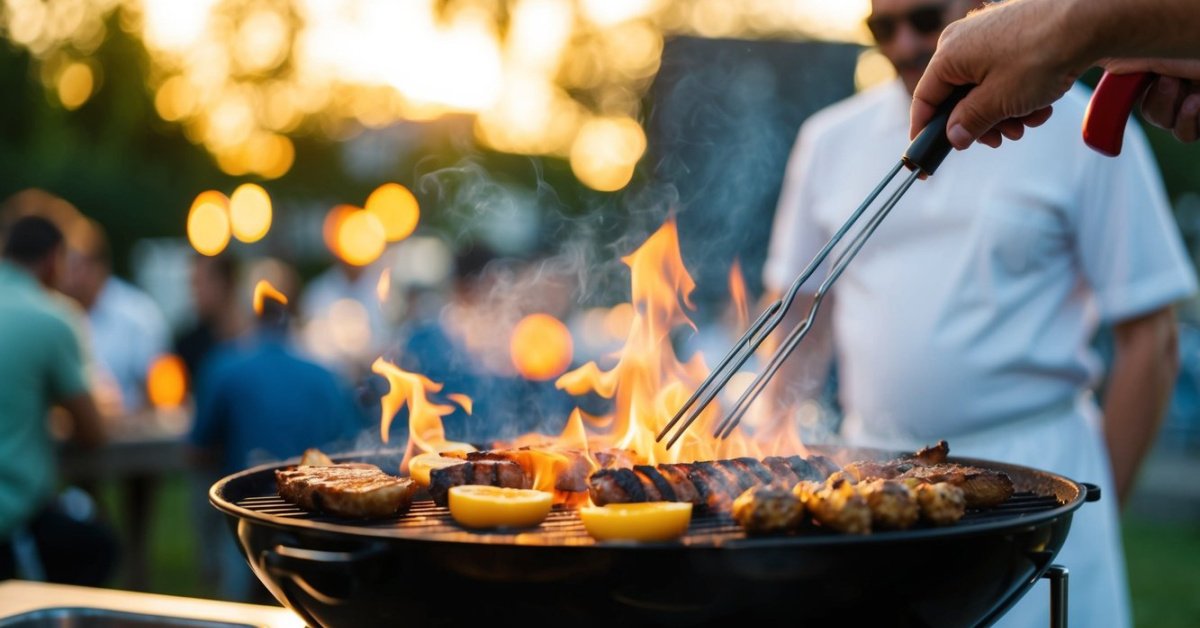
If you love grilling, you may have wondered whether it’s safe to use a grill on your deck. After all, you want to enjoy your outdoor cooking without putting your deck or your home at risk. In this article, we’ll explore the safety of using grills on decks and provide you with some important tips to ensure a safe grilling experience. Whether you have a gas grill, charcoal grill, or electric grill, we’ve got you covered with all the information you need to know.
Grilling is a popular pastime, especially during the summer months. However, it’s important to consider the potential risks involved when using a grill on your deck. In this article, we’ll delve into the safety aspects of grilling on decks and provide you with practical advice to minimize any hazards. From fire prevention to proper ventilation, we’ll cover all the essential safety measures you should take to protect your deck and your home.
When it comes to grilling, safety should always be a top priority. But what about grilling on your deck? Is it safe? In this article, we’ll address the concerns surrounding grilling on decks and offer you expert advice on how to enjoy your outdoor cooking without compromising safety. From choosing the right grill to implementing safety precautions, we’ve got you covered. So, let’s dive in and discover how you can safely grill on your deck and make the most of your outdoor cooking experience.
Fire Safety Considerations
Now that you’re getting the hang of grilling on your deck, let’s talk about some important fire safety considerations. It’s crucial to prioritize safety to ensure a worry-free grilling experience. Here are a few tips to keep in mind:
- Clear the area: Before firing up your grill, make sure the surrounding area is clear of any flammable materials. This includes dry leaves, branches, and even furniture. Maintaining a safe distance from any potential fire hazards will greatly reduce the risk of accidents.
- Proper ventilation: Adequate ventilation is key to preventing the buildup of harmful gases, such as carbon monoxide. Ensure that your deck has proper airflow to allow these gases to dissipate. It’s also a good idea to position your grill away from any walls or structures to avoid the risk of fire spreading.
- Keep a fire extinguisher nearby: It’s always better to be safe than sorry. Have a fire extinguisher readily available in case of emergencies. Familiarize yourself with how to use it properly and ensure that it’s fully functional. Remember, quick action can make all the difference.
- Never leave the grill unattended: Grilling requires your full attention, so it’s important to never leave your grill unattended. Even a momentary distraction can lead to accidents. Stay present and focused while you’re grilling to minimize the risk of fire or flare-ups.
- Clean and maintain your grill: Regular cleaning and maintenance are essential for both the longevity of your grill and your safety. Make it a habit to clean your grill after each use to remove grease and food particles. Additionally, check for any signs of wear and tear or gas leaks, and address them promptly.
Types of Grills
So, you’re ready to take your grilling skills to the next level? Great! Let’s start by exploring the different types of grills you can use on your deck. Each type has its own unique features and benefits, so let’s dive in and find the perfect fit for you.
1. Gas Grills: Gas grills are a popular choice among grill enthusiasts for their convenience and ease of use. They are powered by propane or natural gas, which provides consistent heat and allows for precise temperature control. With a gas grill, you can quickly fire it up and start cooking in no time. Plus, they often come with additional features like side burners and temperature gauges, making them versatile for all your grilling needs.
2. Charcoal Grills: If you’re a fan of that classic smoky flavor, a charcoal grill might be the perfect choice for you. Charcoal grills use charcoal briquettes or lump charcoal as fuel, giving your food that irresistible smoky taste. While they may require a bit more effort to light and maintain the right temperature, the flavor payoff is definitely worth it. Just be sure to use charcoal grills in well-ventilated areas to avoid any buildup of carbon monoxide.
3. Electric Grills: Don’t have access to propane or charcoal? No problem! Electric grills are a great option for those who live in apartments or condos with strict fire regulations. They are easy to use, simply requiring an electrical outlet to power them up. Electric grills are also a breeze to clean since they don’t produce as much smoke or ash. However, keep in mind that they may not reach the same high temperatures as gas or charcoal grills, so adjust your cooking times accordingly.
4. Pellet Grills: Looking to take your grilling to the next level? Consider investing in a pellet grill. These grills use wood pellets as fuel, which adds a distinct smoky flavor to your food. Pellet grills are known for their versatility, allowing you to grill, smoke, roast, and even bake. They feature advanced temperature control systems, making it easier to maintain consistent heat throughout the cooking process.
Now that you’re familiar with the different types of grills, you can choose the one that suits your grilling style and deck setup. Remember, no matter which grill you choose, always prioritize safety and follow the manufacturer’s guidelines for proper usage. Happy gr
Propane vs. Charcoal Grills
Now that you have a good understanding of the safety measures to consider when grilling on your deck, let’s dive into the age-old debate of propane vs. charcoal grills. As a grill master, I’m here to guide you through the pros and cons of each, so you can make an informed decision and elevate your grilling game.
Propane Grills
Pros:
- Convenience: Propane grills are incredibly convenient, as they heat up quickly and allow for easy temperature control. With just the turn of a knob, you’re ready to start grilling in no time.
- Versatility: Propane grills offer versatility in terms of cooking options. You can easily adjust the heat level to sear steaks, cook delicate fish, or slow-roast a tender rack of ribs.
- Cleanliness: Propane grills produce less ash and smoke compared to charcoal grills, making them easier to clean up after your grilling session.
Cons:
- Flavor: While propane grills provide consistent heat and convenience, some argue that they lack the distinct smoky flavor that charcoal grills offer. However, this can be compensated for by using wood chips or smoker boxes to infuse smoky flavors into your food.
Charcoal Grills
Pros:
- Flavor: One of the biggest advantages of charcoal grills is the unmistakable smoky flavor they impart to your food. The charcoal briquettes or lump charcoal create a unique taste that many grilling enthusiasts love.
- Versatility: Charcoal grills allow for different cooking techniques, such as direct grilling, indirect grilling, and smoking. This versatility allows you to experiment with a wide range of flavors and cooking styles.
- Cost: Charcoal grills are generally more affordable than propane grills, making them a budget-friendly option for those just starting out.
Cons:
- Preparation time: Charcoal grills take longer to heat up compared to propane grills. You’ll need to allocate extra time for lighting the charcoal and waiting for it to reach the desired temperature.
- Temperature control: While charcoal grills offer a certain level of temperature control, it can be more challenging to maintain consistent heat compared to propane grills. This requires a bit more skill and practice to master.
Ultimately, the choice between propane and charcoal grills comes down to personal preference. Consider factors such as convenience, flavor, versatility, and
Location and Ventilation
When it comes to grilling on your deck, choosing the right location and ensuring proper ventilation are crucial for a safe and enjoyable experience. Here are some important factors to consider:
1. Choose a safe location

- Select a spot on your deck that is away from any flammable materials such as overhanging branches, awnings, or wooden structures.
- Make sure there is enough clearance around the grill to prevent any accidents or fires.
- Keep in mind that some local ordinances may have specific regulations on where grills can be placed, so be sure to check your local codes.
« Are Barbecue Fritos Gluten-free?
Discover Top Traeger Alternatives: Grills That Outperform »
2. Adequate ventilation
- Good ventilation is essential to prevent the buildup of smoke, fumes, and carbon monoxide.
- Ensure that your grill is positioned in an open area with plenty of space for smoke to dissipate.
- If you have a covered deck, consider installing a vent or using a portable fan to help circulate the air.
3. Keep a fire extinguisher nearby
- It’s always better to be prepared for any emergency. Keep a fire extinguisher within reach of your grilling area.
- Familiarize yourself with how to operate the extinguisher properly and make sure it’s in good working condition.
Grill Maintenance
Now that you have mastered the art of grilling on your deck, it’s important to keep your grill in tip-top shape. Regular grill maintenance not only ensures better performance but also enhances the longevity of your grill. Here are a few essential tips to help you maintain your grill:
1. Clean the Grill Grates: After each use, take a moment to clean the grill grates. Use a wire brush to remove any leftover food particles or debris. This will prevent them from building up and affecting the flavor of your future grilling sessions.
2. Check and Clean the Burners: Over time, burners can become clogged with grease and other residue. Regularly inspect your burners for any blockages and clean them thoroughly using a grill brush or a damp cloth. This will ensure even heat distribution and prevent flare-ups.
3. Empty and Clean the Drip Pan: The drip pan collects grease and drippings, which can become a fire hazard if not cleaned regularly. Empty the drip pan after each use and wash it with warm, soapy water to remove any accumulated residue.
4. Inspect the Gas Line: If you have a gas grill, it’s important to inspect the gas line for any leaks or damage. Use a mixture of dish soap and water to check for bubbles along the gas line. If you notice any leaks or suspect damage, consult a professional before using your grill again.
5. Store your Grill Properly: When not in use, it’s crucial to store your grill properly to protect it from the elements. If possible, invest in a grill cover to shield it from rain, snow, and UV rays. Additionally, store your grill in a covered area to prevent rust and other damage.
Conclusion
Grilling on decks can be safe if you take the necessary precautions. By considering potential risks and following expert advice, you can enjoy a safe and enjoyable grilling experience. Clearing the area, ensuring proper ventilation, and keeping a fire extinguisher nearby are essential safety measures. Regularly cleaning and maintaining your grill will also contribute to its safe use.
When it comes to choosing a grill, there are various options available, including gas, charcoal, electric, and pellet grills. Each type has its unique features and benefits, so it ultimately comes down to personal preference. Factors such as convenience, flavor, versatility, and cost should be considered.

Selecting the right location for grilling on your deck is crucial. Adequate ventilation is necessary to prevent the buildup of dangerous gases. Having a fire extinguisher nearby ensures that you are prepared for any unexpected situations.
Lastly, proper grill maintenance is essential for both safety and longevity. Regularly cleaning the grill grates, checking and cleaning the burners, emptying and cleaning the drip pan, inspecting the gas line, and storing the grill correctly will help ensure its safe and efficient operation.
By following these tips and guidelines, you can safely enjoy grilling on your deck and create delicious meals for your family and friends. Happy grilling!






